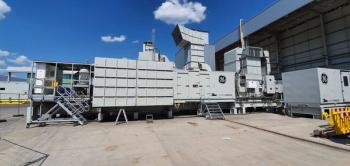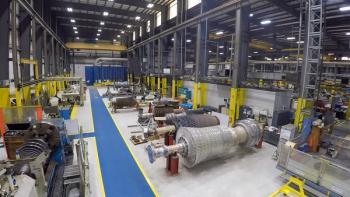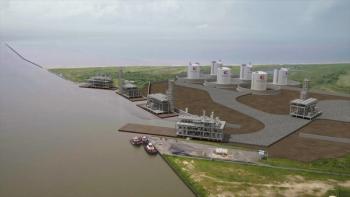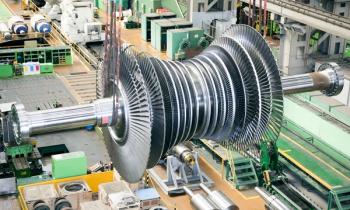
Rolls-Royce mtu Engines Approved for Sustainable Fuels, SCR Systems
The mtu Series 1163 and 8000 engines are now equipped with exhaust gas aftertreatment, which reduces NOx emissions by 75% compared to the previous IMO II limits.
Rolls-Royce now offers the mtu Series 1163 and 8000 large engines, in a power range between 4,800 – 10,000 kW, with selective catalytic reduction (SCR) systems in compliance with emissions stage IMO III. It allows ship operators to enter the Emission Control Areas (ECA), such as the Baltic, North Sea, and offshore North America. Rolls-Royce also approved these models for sustainable fuel operation with HVO.
Compared to previous engines in compliance with IMO II, the new models have exhaust gas aftertreatment with an SCR system as a primary component. The system reduces NOx emissions by 75% over IMO II limits. It is actively controlled, with upstream and downstream emissions continuously measured. Measurement ensures optimum, compliant exhaust gas aftertreatment and minimum dosage of reducing agent.
“With this portfolio expansion, we are making our mtu large engines future-proof and more climate-friendly in line with our strategy,” said Knut Müller, SVP, Global Governmental Business at Rolls-Royce Power Systems. “They have been setting standards in their power range for many years in terms of power density, efficiency and economy.”
Rolls-Royce can install the SCR system both horizontally and vertically and can be adapted to a variety of ship designs and layouts. The system is also designed to be shock-proof for military applications and, if required, is available with bypass to maintain safe engine operation and unrestricted propulsion power under extreme shock conditions and long low-load periods. With approval for HVO and additional DIN EN15940 fuels, the mtu Series 1163 and 8000 engines can replace conventional diesel derived from fossil oil without engine modification.
Rolls-Royce Engine News
In August 2024,
The partners will invest in MTU Yuchai Power to:
- Expand research and development
- Offer customers an improved product portfolio
- Increase market share
- Open new markets, especially in power generation
In July, Rolls-Royce’s mtu Series 4000 FNER/FV gas engines received
The company said the first 1 MW hydrogen-ready mtu should be delivered before 2025. The initial installation is scheduled for early 2025 at the Enerport II lighthouse project in Germany’s Duisburg inland port. Two CHP plants will add to the CO2-neutral energy supply in the new container terminal. Prior to delivery, Rolls-Royce is testing the engines at its gas engine plant in Augsburg. Testing of the 12-cylinder mtu Series 4000 L64 gas engine displayed high performance, efficiency, and low-emissions characteristics.
Newsletter
Power your knowledge with the latest in turbine technology, engineering advances, and energy solutions—subscribe to Turbomachinery International today.




